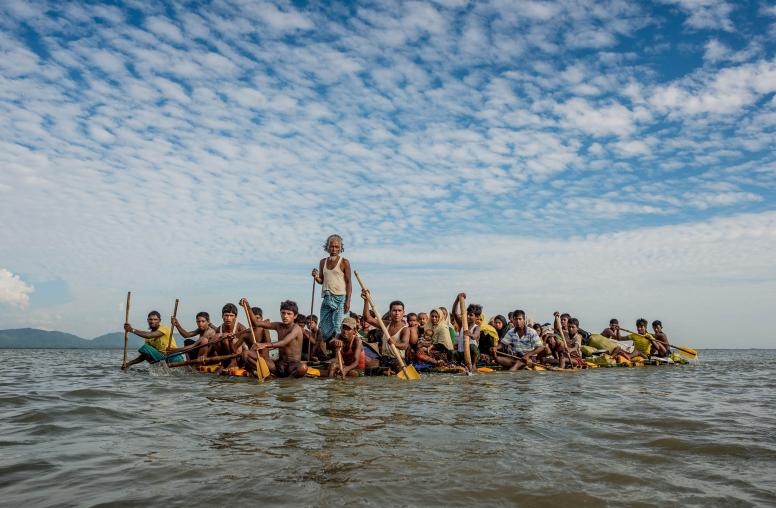U.S. Leadership in Atrocity Prevention
A First Look at the New U.S. Strategy to Anticipate, Prevent and Respond to Atrocities
From Ukraine to Myanmar, mass atrocities continue to inflict devastating harm on targeted communities. These crimes — from the ongoing atrocities against the Uyghurs to the mass targeting of civilians and ethnic minorities in Tigray to systematic attacks against civilians in Ukraine — underscore the enduring need for U.S. leadership in atrocity prevention. The release of the U.S. Strategy to Anticipate, Prevent and Respond to Atrocities sets forth a government-wide approach for identifying, preventing and responding to the risk of atrocities and advances atrocity prevention as a national security priority. With atrocity risk alarmingly high for vulnerable civilian populations around the globe, such a strategy is critical for effective atrocity prevention efforts.
On July 20, USIP, the Simon Skjodt Center for the Prevention of Genocide at the U.S. Holocaust Memorial Museum and the U.S. State Department held a discussion of the newly released U.S. Strategy to Anticipate, Prevent and Respond to Atrocities — as well as looked at the work the Atrocity Prevention Task Force has done over the past year as documented through its 2022 report to Congress as part of the Elie Wiesel Genocide and Atrocities Prevention Act.
Continue the conversation on Twitter using #AtrocityPrevention and #ElieWieselAct.
Agenda
9:00am - 9:30am: Welcoming Remarks
- Lise Grande
President and CEO, U.S. Institute of Peace - Naomi Kikoler
Director, Simon-Skjodt Center for the Prevention of Genocide, U.S. Holocaust Memorial Museum - Theodora Klayman
Holocaust Survivor - Merrick B. Garland
Attorney General of the United States of America
9:30am - 10:30am: Panel 1: Institutionalizing Atrocity Prevention
- Nidhi Bouri
Acting Senior Director, Development, Global Health and Humanitarian Response, U.S. National Security Council - Robert J. Faucher
Principal Deputy Assistant Secretary, Bureau of Conflict and Stabilization Operations, U.S. Department of State - Robert Jenkins
Assistant to the Administrator, Bureau for Conflict Prevention and Stabilization, USAID - Michelle Strucke
Deputy Assistant Secretary of Defense for Global Partnerships, U.S. Department of Defense - Ambassador Beth Van Schaack
Ambassador-at-Large for Global Criminal Justice, U.S. Department of State - Naomi Kikoler, moderator
Director, Simon-Skjodt Center for the Prevention of Genocide, U.S. Holocaust Memorial Museum
10:30am – 10:35am: Break
10:35am-11:35am: Panel 2: Operationalizing Atrocity Prevention
- Toby Bradley
Deputy Assistant Secretary, Bureau of International Narcotics and Law Enforcement Affairs, U.S. Department of State - Scott Busby
Principal Deputy Assistant Secretary, Bureau of Democracy, Human Rights and Labor, U.S. Department of State - Katrina Fotovat
Senior Official, Office of Global Women’s Issues, U.S. Department of State - Allison Lombardo
Deputy Assistant Secretary, Bureau of International Organization Affairs, U.S. Department of State - Rosarie Tucci
Director, Center for Democracy, Human Rights and Governance, U.S. Agency for International Development - David W. Yang, moderator
Vice President, Center of Thematic Excellence and Gandhi-King Global Academy, U.S. Institute of Peace
11:35am – 11:45am: Closing Remarks
- Robert Silvers
Undersecretary, Office of Strategy, Policy and Plans, U.S. Department of Homeland Security - David W. Yang
Vice President, Center of Thematic Excellence and Gandhi-King Global Academy, U.S. Institute of Peace



